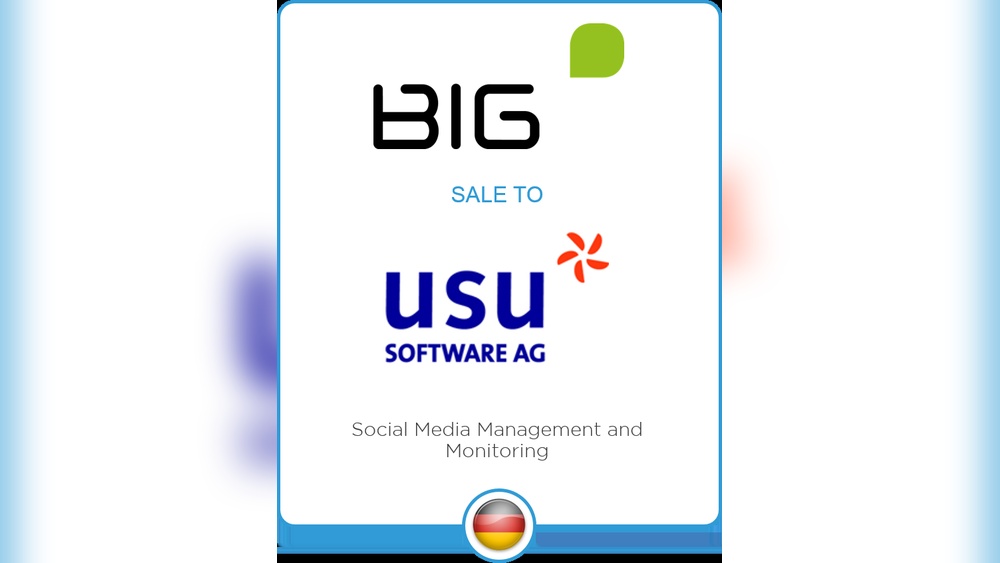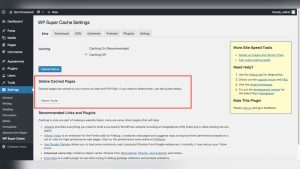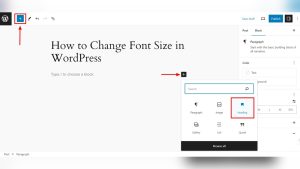Are you wondering how a social software company should approach sales to boost growth and satisfy customers? Choosing between transactional and solution sales can shape your entire sales strategy and impact your success.
Should you aim for quick, straightforward deals or focus on understanding your customers’ unique needs and offering tailored solutions? You’ll discover which sales method fits social software companies best and why making the right choice can transform your customer relationships and revenue.
Keep reading to find out how to align your sales approach with your business goals and customer expectations.

Credit: www.reddit.com
Transactional Sales Basics
Transactional sales focus on quick and simple purchases. It suits situations where customers want fast decisions without much discussion. This sales style often targets products or services that meet immediate needs. It relies on clear product features and competitive pricing to close deals rapidly.
Understanding transactional sales helps social software companies decide if this approach fits their market. It contrasts with solution sales, which involve deeper customer engagement and customized offerings.
Key Features
Transactional sales highlight speed and efficiency. The process is straightforward, with little negotiation. Sales reps emphasize product benefits and price. Customer interaction is brief and focused on closing the sale quickly. There is less need for building long-term relationships in this model.
Ideal Product Types
Products suited for transactional sales are usually low-cost and standard. Examples include simple software subscriptions or add-ons with fixed features. These products do not require customization or complex explanations. Customers can easily understand the value and make quick choices.
Sales Cycle Length
Transactional sales have short sales cycles. Deals often close within days or even hours. This speed suits fast-moving markets or impulse purchases. It reduces the time and effort spent on each customer. The quick cycle helps companies maintain steady sales volume.
Solution Sales Essentials
Solution sales is a strategic approach that focuses on understanding a customer’s specific problems. It aims to provide tailored solutions that meet those needs effectively. This approach fits well with social software companies due to the complexity and customization their products often require.
Solution sales goes beyond just selling a product. It involves deep customer interaction and problem-solving. The goal is to create value and build lasting partnerships.
Core Principles
Solution sales starts with listening carefully to customers. It requires identifying their pain points and challenges. Sales teams act as consultants, not just sellers. They focus on how the product or service solves real problems. The approach is collaborative, aiming for win-win outcomes.
Understanding the customer’s business and goals is essential. Sales reps customize their pitch to match these insights. They highlight benefits and results over simple features. This builds trust and shows genuine interest in the customer’s success.
Best Use Cases
Solution sales suits products that need explanation and adaptation. Complex social software platforms fit this category well. These platforms often require integration with existing systems. They must align with specific business workflows.
Companies with long sales cycles benefit from solution sales. It supports multiple touchpoints and relationship building. Large organizations with diverse needs also find this approach effective. The strategy handles customization and ongoing support needs.
Customer Engagement
Engagement in solution sales is interactive and ongoing. Sales teams ask detailed questions to understand needs deeply. They provide demos, trials, and tailored presentations. This helps customers see the real value clearly.
Follow-up and feedback are key parts of engagement. Sales reps stay involved after the sale to ensure satisfaction. They address any issues and suggest improvements. This builds loyalty and encourages repeat business.
Social Software Industry Needs
The social software industry serves businesses and users with digital tools for communication and collaboration. These tools help teams connect, share information, and work together efficiently. Understanding the industry’s needs helps decide the best sales approach.
Social software products vary in complexity and target different customer groups. Sales strategies must match these factors to succeed. The following points explain key needs of this industry.
Product Complexity
Social software often involves many features and integrations. It must fit into existing workflows and systems. Buyers need clear explanations of how the product works and benefits them. This complexity requires a detailed sales approach.
Customer Expectations
Customers expect personalized solutions that solve their unique problems. They want software that improves productivity and supports collaboration. Quick, simple sales pitches rarely meet these needs. Instead, customers look for trusted advice and tailored recommendations.
Sales Cycle Characteristics
Sales cycles in social software tend to be longer. Multiple decision-makers often participate in buying decisions. Demonstrations, trials, and consultations are common steps. Sales teams must nurture relationships and provide ongoing support during this process.

Credit: www.arcweb.com
Comparing Sales Approaches
Choosing between transactional and solution sales depends on a company’s goals and product nature. A social software company must weigh these methods carefully. Each approach affects how sales teams interact with customers and drive business success. Understanding key differences helps decide the best fit for long-term growth.
Speed Vs. Relationship Building
Transactional sales focus on quick deals. The goal is to close sales fast with minimal interaction. It suits simple products or one-time purchases.
Solution sales take more time. Sales reps build trust and understand customer needs deeply. This approach fits complex software requiring customization and ongoing support.
Impact On Customer Loyalty
Transactional sales often lack strong loyalty. Customers buy based on price or convenience alone. Repeat business can be low.
Solution sales create stronger loyalty. Customers see the company as a partner solving their problems. This leads to repeat purchases and referrals.
Revenue And Growth Implications
Transactional sales can generate quick revenue spikes. The focus is volume over value. Growth depends on attracting many new customers.
Solution sales build steady, long-term revenue. Higher value deals and renewals drive sustainable growth. It suits social software that evolves with user needs.
When Transactional Sales Fits
Transactional sales work best when the buying process is fast and simple. The focus stays on quick exchanges rather than building long-term relationships. Social software companies choose this approach in specific cases where speed and volume matter most.
This sales method suits products with straightforward features and easy purchase decisions. It helps companies handle many customers efficiently without complex negotiations.
Low-cost, High-volume Products
Transactional sales fit products that cost little and sell in large numbers. Social software tools with basic plans or add-ons fall here. These products attract many buyers who want immediate access without extra guidance.
The goal is to maximize sales by offering affordable options quickly. Customers often buy on impulse or simple needs, making a fast sale ideal.
Simple Feature Sets
When software has few features, transactional sales make sense. Buyers understand the product easily and do not need detailed explanations. The sales focus on key benefits rather than complex solutions.
This clarity speeds up the buying decision. Social software companies can use clear messaging to highlight main functions and pricing.
Quick Purchase Decisions
Some buyers want to buy software fast without long research. Transactional sales match this need by removing barriers and delays. The process is smooth, allowing customers to decide quickly.
Social software companies use this method for buyers who do not require customized solutions. The emphasis is on convenience and speed rather than consultation.

Credit: www.susqu.edu
When Solution Sales Excels
Solution sales shines in situations where simple transactions fall short. It suits companies with complex offerings and clients who need more than standard products. Social software companies often face diverse client demands that require deep understanding and flexible responses. This approach builds value beyond just selling software. It creates lasting solutions tailored to each client’s unique challenges.
Such sales focus on collaboration and problem-solving. The sales team acts as a trusted advisor, not just a seller. This method excels when the buyer’s needs cannot be met by off-the-shelf products. It helps social software firms stand out by offering personalized strategies that align with client goals.
Complex Needs And Customization
Social software often supports different industries with varied workflows. Clients expect software that fits their specific processes. Solution sales allow customization based on detailed client discussions. Sales teams analyze business challenges before proposing features or integrations. This approach solves problems beyond basic functionality. It builds solutions that adapt to evolving client needs.
Long-term Partnerships
Solution sales focuses on relationships, not one-time deals. Social software companies benefit from this by forming strong client bonds. These partnerships encourage ongoing feedback and improvements. Clients feel supported throughout the software lifecycle. This trust leads to higher retention and upsell opportunities. It turns clients into collaborators rather than just customers.
Tailored Problem Solving
Each client faces unique challenges that off-the-shelf products cannot fix. Solution sales digs deep to identify these pain points. The sales team designs solutions that address root causes effectively. This personalized approach increases customer satisfaction and success rates. It positions the software as a strategic asset, not just a tool.
Hybrid Sales Strategies
Hybrid sales strategies combine elements of transactional and solution sales. This approach suits social software companies well. It allows flexibility to meet diverse customer needs. Using a hybrid method, sales teams can quickly close simple deals. They can also offer tailored solutions for complex customer problems.
Blending Techniques
Hybrid sales mix quick, product-focused selling with consultative selling. Sales reps highlight features and benefits for straightforward deals. At the same time, they listen carefully to understand deeper customer needs. This blend helps balance speed and relationship building. It also adapts messaging to different buyer types.
Adapting To Customer Segments
Different customers require different sales approaches. Small businesses might prefer fast, transactional sales. Larger companies often need customized solutions and ongoing support. A hybrid strategy lets sales teams shift between these styles. They can respond to each segment’s unique challenges and goals. This flexibility improves customer satisfaction and retention.
Optimizing Sales Outcomes
Combining transactional and solution sales increases overall success. Simple sales close faster, boosting revenue quickly. Complex sales build stronger relationships and higher lifetime value. Teams can allocate resources based on deal size and complexity. This optimization reduces wasted effort and improves efficiency. It also helps social software firms grow steadily and sustainably.
Sales Team Training And Tools
Training and equipping the sales team is vital for success in social software companies. The type of sales approach—transactional or solution—determines the skills and tools needed. Proper training helps the team meet customer expectations and close deals efficiently.
Choosing the right tools supports the sales process and improves performance. It also helps track progress and identify areas for improvement. Understanding differences in training needs ensures the team is prepared for the chosen sales style.
Skill Sets For Each Approach
Transactional sales demand quick thinking and product knowledge. Salespeople must highlight features and benefits clearly and fast. They focus on closing deals with minimal negotiation or customization.
Solution sales require deeper expertise and listening skills. Reps must understand client challenges and offer tailored solutions. They build relationships and guide customers through complex buying decisions.
Crm And Support Systems
For transactional sales, simple CRM tools tracking orders and contacts suffice. Automation helps speed up follow-ups and reminders. Support systems focus on quick issue resolution.
Solution sales need advanced CRMs to manage long sales cycles and multiple stakeholders. These systems store detailed customer data and interaction history. They enable personalized communication and collaboration across teams.
Measuring Success Metrics
Transactional sales measure success by the number of deals closed and sales volume. Speed and efficiency are key performance indicators. Tracking conversion rates helps refine sales tactics.
Solution sales focus on customer satisfaction, deal size, and contract length. Relationship strength and customer retention rates also matter. Success comes from solving problems and creating value over time.
Frequently Asked Questions
What Is An Example Of A Transactional Sale?
An example of a transactional sale is a Black Friday deal where a customer quickly buys a discounted refrigerator without ongoing interaction.
What Is The Difference Between Transactional Sales And Solution Selling?
Transactional sales focus on quick, simple purchases with minimal customer interaction. Solution selling identifies customer problems and provides tailored solutions. Transactional suits low-cost, fast decisions; solution selling fits complex needs requiring trust and customization.
What Are The Four Types Of Selling Methods?
The four types of selling methods are transactional, consultative, solution, and relationship selling. Transactional focuses on quick sales. Consultative involves understanding customer needs. Solution selling provides tailored solutions. Relationship selling builds long-term customer loyalty through trust and repeat business.
What Is The Difference Between Consultative Sales And Transactional Sales?
Consultative sales focus on understanding customer needs and offering tailored solutions. Transactional sales prioritize quick, simple purchases with minimal interaction. Consultative builds trust and solves problems; transactional aims for fast, efficient sales often based on price or product features.
Conclusion
A social software company often benefits from solution sales. This method focuses on understanding customer problems deeply. It offers tailored answers that fit unique needs. Transactional sales suit quick, simple purchases instead. But social software usually involves complex choices and long-term use.
Building trust and showing value matters most here. Choosing the right sales approach helps companies grow steadily. It strengthens customer satisfaction and loyalty over time. This leads to better business results and stronger client bonds.




